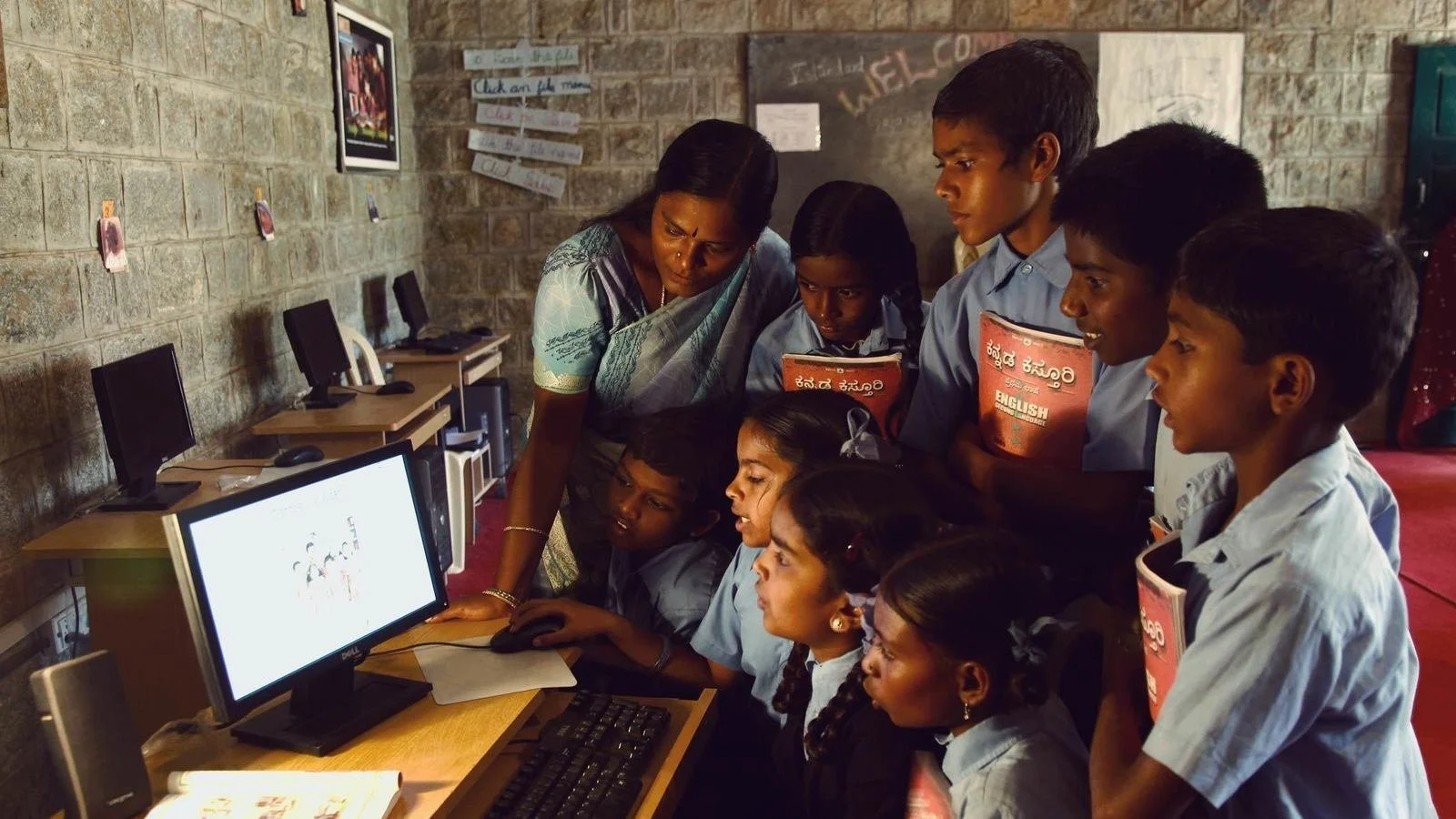Education is a fundamental right, yet millions of underprivileged students in India struggle to access quality learning opportunities. With the rise of digital education, technology has the potential to bridge this gap. However, financial constraints, lack of digital infrastructure, and inadequate training remain significant barriers. Corporate Social Responsibility (CSR) initiatives have emerged as a powerful tool to support these students by integrating innovative approaches that leverage technology, infrastructure development, and skill-building programs. Companies across sectors are making substantial contributions to ensure that education reaches the most vulnerable sections of society, creating a brighter future for underprivileged students.
The Role of CSR in Digital Education for Underprivileged Students
With rapid digital transformation, traditional education models are evolving. CSR initiatives are playing a crucial role in making education more accessible and inclusive. Companies are investing in smart classrooms, e-learning platforms, digital devices, and teacher training to equip students with the necessary skills for the digital age.
Key areas where CSR is making a difference include:
- Providing Digital Infrastructure: Establishing smart classrooms, distributing devices, and ensuring internet connectivity.
- Developing E-Learning Content: Creating localized, multilingual, and interactive educational resources.
- Training Teachers and Students: Conducting digital literacy programs to enhance learning outcomes.
- Financial Aid and Scholarships: Supporting students with tuition fees, books, and online course subscriptions.
Innovative CSR Approaches Transforming Education
1. Smart Classrooms and Digital Learning Solutions
One of the most impactful CSR initiatives is the introduction of smart classrooms in government and low-income private schools. Companies such as Infosys Foundation, TCS, and Wipro have been instrumental in setting up digital learning platforms that provide access to quality educational resources.
For example, the Tata Trusts’ ‘Connected Learning Initiative (CLIx)’ integrates technology into classrooms to enhance learning experiences. These digital classrooms use multimedia content, interactive modules, and AI-based learning tools to engage students more effectively.
2. Free Digital Devices and Internet Connectivity
Many underprivileged students lack access to smartphones, tablets, and laptops, making online education a challenge. CSR programs by companies like Samsung, Google India, and Dell Foundation focus on distributing digital devices and ensuring internet connectivity in remote areas.
Initiatives like Google’s ‘Internet Saathi’ program have empowered thousands of students, especially girls, by providing internet access and digital literacy training in rural India.
3. Developing Multilingual E-Learning Content
Language barriers often prevent students from accessing quality education. Many CSR programs are addressing this by developing multilingual and localized e-learning content.
For example, the Reliance Foundation’s Education for All initiative has partnered with e-learning platforms to create educational content in regional languages, making learning accessible for students who are not fluent in English.
4. Teacher Training and Digital Literacy Programs
Teachers play a critical role in ensuring the effectiveness of digital education. Several CSR initiatives focus on training teachers in digital pedagogy, helping them integrate technology into their teaching methods. Organizations like the Azim Premji Foundation and Microsoft’s ‘Project Shiksha’ provide teacher training programs to improve digital literacy and effective use of technology in classrooms.
Through these programs, educators learn to use e-learning tools, interactive applications, and AI-powered analytics to track student progress and personalize learning experiences.
5. Scholarships and Financial Assistance for Online Education
The economic impact of the digital divide is significant, with many students unable to afford online courses and digital learning tools. CSR-driven scholarship programs and financial assistance schemes help bridge this gap.
Corporations such as HDFC Bank, ICICI Foundation, and Infosys Foundation provide financial aid to students from economically weaker sections, ensuring that financial constraints do not hinder their education.
6. Mobile Learning and Community Digital Centers
For students in remote areas with limited school infrastructure, mobile learning initiatives and community digital centers serve as an alternative mode of education.
CSR-backed programs such as the L&T CSR Digital Learning Vans bring educational content directly to students, especially in rural areas. These mobile classrooms are equipped with digital learning kits, projectors, and internet connectivity to enable learning in places where traditional schools are not available.
Impact of CSR-Driven Digital Education Initiatives
The impact of CSR initiatives in supporting underprivileged students in the digital age has been profound. Some of the key benefits include:
- Improved Learning Outcomes: Access to digital tools and smart classrooms enhances comprehension and engagement.
- Increased Enrollment and Retention: Schools equipped with digital learning solutions have witnessed higher attendance rates.
- Empowerment of Girls and Marginalized Communities: Digital education has provided new opportunities for students from disadvantaged backgrounds.
- Skill Development for the Future Workforce: Digital literacy programs help students develop critical thinking, coding, and problem-solving skills, preparing them for the future job market.
Challenges and the Way Forward
Despite the success of CSR initiatives, several challenges remain, including limited access to electricity, resistance to digital adoption, and the need for long-term sustainability. To ensure the continued success of CSR-driven digital education programs, the following steps must be taken:
- Stronger Public-Private Partnerships: Collaboration between governments, corporations, and NGOs can scale up digital education programs.
- Investment in Localized Digital Content: Creating region-specific e-learning materials will make education more inclusive.
- Ensuring Affordable Internet Access: Expanding connectivity in rural areas is essential for digital learning to reach every student.
- Continuous Training for Educators: Regular teacher training programs must be conducted to keep up with evolving digital tools and methodologies.
Conclusion
Corporate Social Responsibility initiatives have become a driving force in transforming education for underprivileged students in the digital age. By providing smart classrooms, digital devices, scholarships, and teacher training, companies are not only fulfilling their CSR obligations but also making a lasting impact on the future of education in India.
As technology continues to reshape the learning landscape, CSR-driven digital education programs will play a crucial role in ensuring that every child, regardless of their socio-economic background, has access to quality education. By fostering collaboration and innovation, these initiatives can help bridge the educational divide and create a more equitable learning environment for all.

